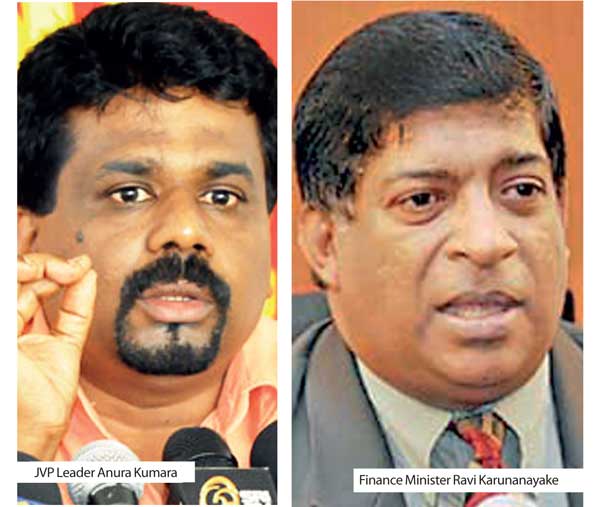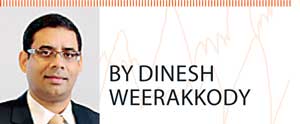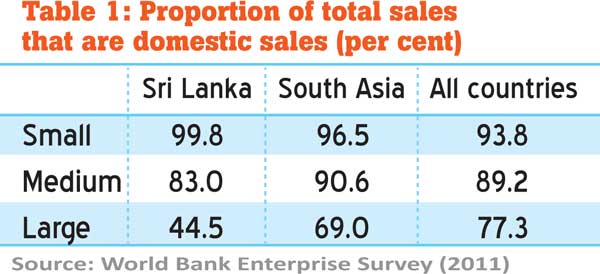30 Nov 2016 - {{hitsCtrl.values.hits}}

 One political leader whose stock has gone up by leaps and bounds in the last few months has been Janatha Vimukthi Peramuna (JVP) leader Anura Kumara Dissanayake, a local university graduate and a former Cabinet Minister of Agriculture, Livestock, Land and Irrigation.
One political leader whose stock has gone up by leaps and bounds in the last few months has been Janatha Vimukthi Peramuna (JVP) leader Anura Kumara Dissanayake, a local university graduate and a former Cabinet Minister of Agriculture, Livestock, Land and Irrigation.
Dissanayake is an ardent campaigner against the executive presidential system of Sri Lanka and has acquired a reputation for his stand on social justice.
He recently demanded to know why the state officials tasked with providing luxury vehicles to 58 MPs supporting the government should not be accused of fraud. Making a special statement in parliament, Dissanayake said, “The entire project of providing luxury cars to 58 MPs backing the government costs over Rs.2,430 million to the public purse.”
He went on to say, “The procurement notices were published before the Cabinet approved the project. The procurement committee and the technical evaluation committee have rejected the bidders who indicated their willingness to supply cars. Yet, the process is in the progress and these vehicles have been leased at a monthly rental of Rs.700,000 each.
The cost per one kilometre would be around Rs.250. Each vehicle leased out for 60 months would cost around Rs.42 million more than its market value. For the fleet of 58 vehicles, the government will have to pay Rs.2,436 million. Though the government pays that amount, it would not own the vehicles.”
Dissanayake further said that each of those MPs was currently paid Rs.200,000 monthly transport allowance. He demanded to know why they were given cars at the expense of the taxpayers.
“Those MPs had already obtained their duty-free vehicle permits,” he pointed out. Dissanayake demanded to know the date on which the decision to give 58 MPs new cars was taken, the details of the procurement process and whether the government could justify the provision of luxury cars to MPs who had been paid a Rs.200,000 transport allowance and also given a duty-free vehicle permit.
Justification
Finance Minister Ravi Karunanayake, a professionally qualified accountant by training, who knows the difference between an operating and a financial lease, explained that the government would get Rs.25 million as import duty for each of the 58 vehicles to be given to 58 MPs. Further, he said that the government would also get tax, in addition to the saving of some amount of funds, through this exercise.
The minister said that a private company under an operational lease would import the vehicles and that therefore, it would be possible to save a considerable amount of money. “The repair expenditure will have to be borne by the same company. Therefore, the government does not have to spend much for the vehicles,” Karunanayake said.

There have been instances where bills are produced by the users of state vehicles to get funds reimbursed continuously for repairs, etc. But an operational lease will prevent such instances in the future.
Karunanayake also said that it was decided by the Cabinet on a Cabinet paper presented by the parliamentary reforms and mass media minister to pay a transport allowance of Rs.200,0000 to the MPs monthly in the interim, as the tender process of ordering new vehicles took time.
Real issue
However, the answer the public would like to have is why the government is giving luxury cars to MPs when they have already been given a duty-free permit to buy a top-end SUV and also a fuel allowance at a time when the public has been burdened with heavy taxes and fines?
Then on the question of road fines, initially, it was only proposed as a budget proposal, the government wanted to increase the minimum fine for road traffic offenses to Rs.2500. It was challenged even before the budget debate entered its final stage due to objections from those such as private bus operators who even warned of strike action. Afterwards, the government decided to do away with the proposed increase on the minimum fine.
Instead, it proposed to introduce a fine as large as Rs.25,000 for seven major offenses that included drunken driving, speeding, driving without a licence, overtaking from left, etc. Heavy penalization for offenses like drunken driving with a proper process and driving without a licence or insurance is not opposed.
But the question remains why a driver earning Rs.25,000 or Rs.30,000 a month overtaking from the left during rush hours is subjected to such a big fine. There are 1.2 million trishaw drivers in the country. Around 80 percent of that population do it as a living, earning Rs.25000 to Rs.30,000 a month.
There are another 200,000 who make a living by driving, earning around Rs.18,000 to Rs.50,000 a month. Against this backdrop, the government will come under pressure to reconsider the proposal. The Rs.25,000 for speeding would also need to be implemented with caution, given that the driver will be at the mercy of law enforcement. The government should from now on make a huge effort to rope in all the professionals in private practice and businessmen who deal mostly in cash into the tax net without continuing to squeeze out the existing tax payers.
Public expectation
The government should avoid falling into the Hillary Clinton trap that epitomized the dorky arrogance and smugness of the professional elite. Instead, like Trump, who was able to stir up the spirit of the working class by understanding their resentment, they too need to treat the working class with respect and assist them do things that are within their reach.
We can no longer advise young men with university education to take pink-collar jobs. In a world dominated by social media, the political discourse on values-based conduct in politics has reached a crisis level in all democracies fake, real and quasi. Today, laws, high taxes and fines alone cannot ensure a just society. Promises and state-appointed commissions alone cannot deliver us from the cycle of greed that makes it routine for politicians in power to abuse public resources.
In the final analysis, people gave a mandate to this government to weed out corruption and to penalize those involved in such wrongs. Therefore, what the public needs is good governance in word and deed because that is a sine qua non for achieving economic development and inclusive growth in the country.
(Dinesh Weerakkody is a
thought leader)
10 Jan 2025 13 minute ago
10 Jan 2025 28 minute ago
10 Jan 2025 33 minute ago
10 Jan 2025 1 hours ago
10 Jan 2025 1 hours ago